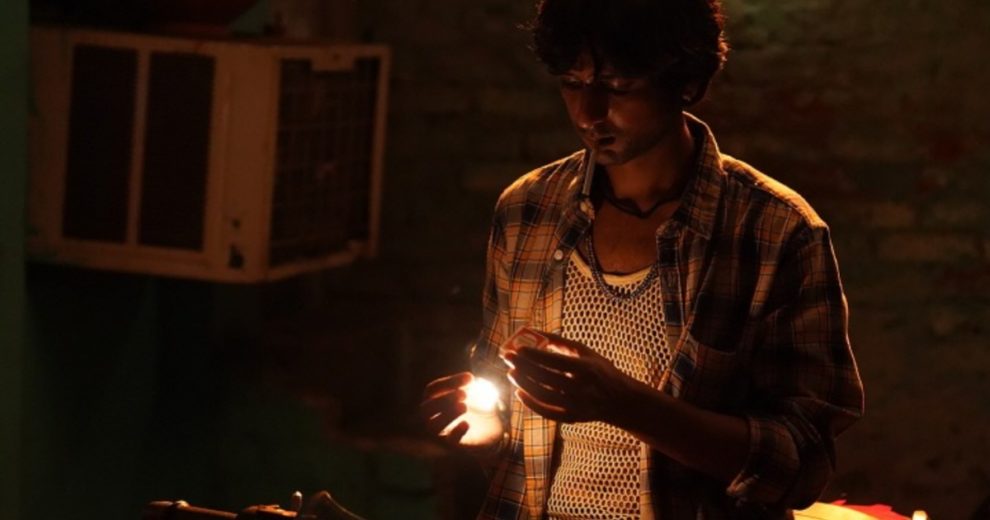The issue with the rape of women in India, although taking place for a really long time, has only recently started to see the light of day, particularly for Westerners. Aparna Sen presents the phenomenon in “all its glory”, while adding the concept of the death penalty in a rather rich, contextually film.
“The Rapist” is screening at Busan International Film Festival

Naina, a criminal psychology professor, is married to Aftab, also a professor and an activist against the death penalty, with the two of them enjoying an upper middle class life, where their sole issue is that they cannot have children, despite their efforts. One fateful night, however, Naina s sexually assaulted in a slum she visits to help the daughter of a school custodian embroiled in a case of domestic violence and infanticide. The attack leaves her colleague dead, and Naina severely injured, a fact that does not deter the police chief from grinding her for what happened, even to the point of asking her if she is a prostitute for being at such a place during the night. However, showing extreme courage and with the support of her husband, Naina testifies in a court case that eventually leads the rapist-murderer to a death sentence. At the same time, she also discovers that she is pregnant, to the horror of both her and Aftab's. Eventually, she decides to keep the baby and start talking with her imprisoned rapist in order to better understand the reasons behind her actions, two decisions, however, that bring her in a direct confrontation with her husband.
Aparna Sen takes a very interesting approach to the main issues she examines in her film. She begins the story by showing the differences in the lives of the rich (Arjun and Naina) and the poor who live in the slums, with Prasad (the rapist) depicted inhabiting an environment where being violent to women for the way they are dressed or the time they get home, being the norm. However, that the rich, upper-classed Naina is the one that gets raped shows that this kind of violence does not consider social status, but can happen to any woman, despite her education, wealth or caste. This concept is also extended to the maid of the protagonist's household, who, at some point, also reveals that she has suffered from a similar fate, with her confession actually being a turning point for Naina's mentality.

This antithetical, (self) contradictory approach, with Sen building a concept only to demolish it eventually, is the main element of the narrative. In that fashion, Aftab is against the death penalty, but finds himself in a situation where wishing for the rapist to receive capital punishment could be justified, as the behaviour of the husband of the second victim clearly shows. The police, and in general the justice system, seems to hold a distinct prejudice against women who get raped, but in the end, the perpetrator is actually put on trial and receives the maximum penalty, a concept that states that, at some level, at least, the judicial system works. On the other hand, the story also comments that ithe system seems to work only for the rich and educated, while a lawyer friend of Aftab also comments that the extremely poor are essentially the only ones that receive capital punishment. Furthermore, the role of the police is presented as rather despicable from the beginning, in a concept that is cemented in the most grotesque way in the treatment of Prasad during his imprisonment.
The interviews Naina conducts with her rapist and his mother highlight the fact that Prasad is a product of his environment, since he learned from childhood to associate sex with violence, while he was also the recipient of bullying and domestic abuse from his father, and essentially, a man who seems more ignorant that evil. His very last behaviour, however, completely demolishes any kind of sympathy the viewer might have gained for him, with Sen essentially stating that there is no excuse for such actions, and that repentance may never actually happen.
While the social commentary is rather rich and excellently presented, the family drama aspect is on a definitely lower level, with the way it unfolds eventually reminding of something of a soap opera, with the happy ending adding to this sense. It is saved, though, to a degree at least, by the convincing acting, with Konkona Sen Sharma being rather convincing in all the different psychological statuses Naina is experiencing and Arjun Rampal, having a more distant, but also highlighting the inner struggle, performance as Aftab. The evident beauty and charisma of the two of them also works well here, as much as their chemistry. Tanmay Dhanania as Prasad has the most impactful role, and he gives a great performance, essentially as the embodiment of the antithetical/contradictory elements mentioned before.
Where the movie truly falters, however, is the cinematography. Despite the fact that the framing is accomplished and the presentation of the various settings realistic, the color and lighting scheme is completely wrong, with a number of scenes so bright that not even the subtitles are visible, and others so washed in hues of yellow and green, that look like as if they came from the pages of the comic book, in a style that even reminds of “Sin City” on occasion. This aspect detracts significantly from the contextual impact of the movie, particularly in the way Prasad's cell is presented, while the extremely polished images also point towards a TV-drama. Lastly, at 132 minutes, the movie somewhat overextends its welcome, since Sen decided to deal with too many issues plus the domestic life of the couple, which could have been presented more briefly. Rabiranjan Maitra's editing is quite good in the relatively fast pace it implements here, but again, some trimming would definitely benefit the title.
Despite these issues, “The Rapist” is a rather brave and impactful movie, that examines the concept of rape, its consequences and the environment that produces such behaviour in the most eloquent fashion.















